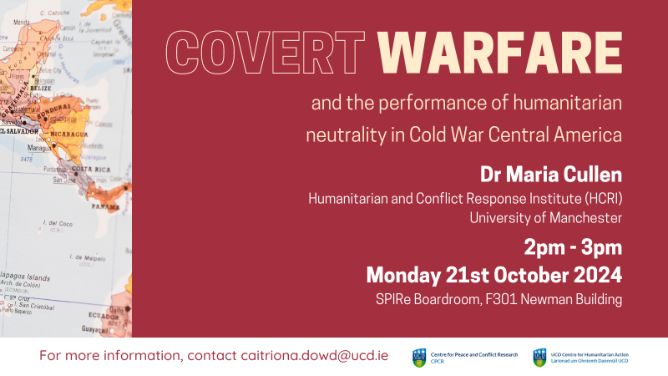
This paper will address the tensions between and within humanitarian organisations over the relevance of the principle of neutrality to their work in Cold War Central America in the early 1980s. Specifically, it will focus on Oxfam and Médecins Sans Frontières and their reactions to military repression of Salvadoran refugees in Honduras, which turned out to be a hostile environment rather than a space of refuge for civilians who fled Army massacres in their own country. Using archival and oral history research, paper will discuss how Oxfam and MSF engaged with this challenging context for aid delivery – in terms of their knowledge of covert surveillance in the camps, the collusion of other organisations with the Honduran Army and the tendency for field staff to go beyond humanitarianism and engage in active solidarity with Salvadorans. Interpretations of the relevance of neutrality, and of the meaning of humanitarian action, in these circumstances were fundamentally contested. Uncovering this history holds insight for thinking about the practicality and ethics of providing aid in conflicts today.
-------------------------------------------------------------------------------------------------------------------
Dr Maria Cullen is a postdoctoral research associate at the Humanitarian and Conflict Response Institute at the University of Manchester, where her work focuses on different aspects of the historical evolution of humanitarian medicine, including the development of global logistics capacities, standardisation and clinical norms. She holds a PhD in History from the University of Galway, and an MA in International Relations from University College Dublin.